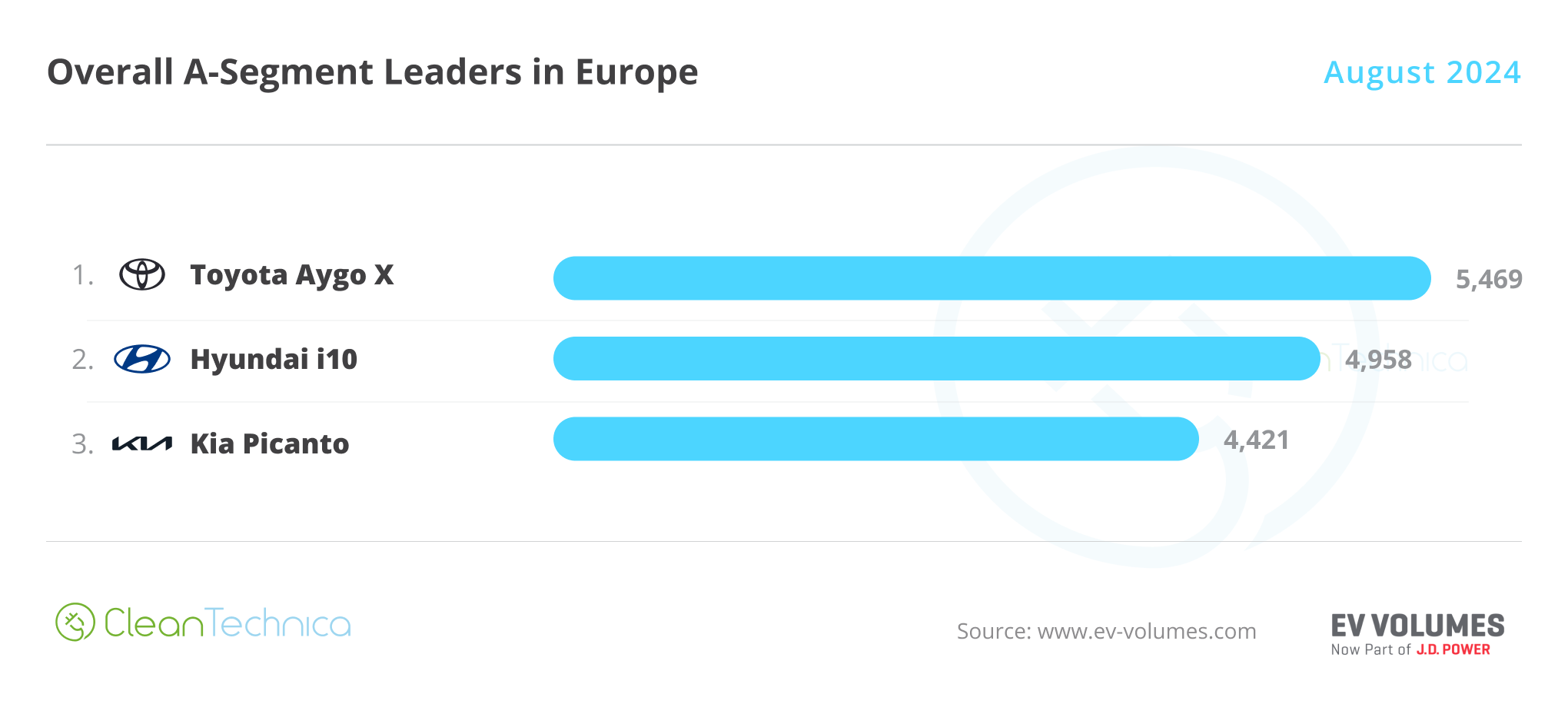Sign up for daily news updates from CleanTechnica on email. Or follow us on Google News!
A post at Motortrend made an interesting case against converting classic cars to run on electric power. In this article, I’m going to briefly explain why they’re mostly right, and where they’re pretty much wrong. TL;DR: it depends on what you’re actually going to do with the classic car.
The Argument, Summarized
The first and most important thing they covered was costs. When manufacturers like Ford and GM release “electric crate motors” that you could use for conversions, the prices sound pretty good. But, as with old TV commercials, there’s a catch*: batteries not included. So, take the EV conversion motor, and then add tens of thousands for batteries, even if you go with salvaged ones from a wrecked Tesla. Then, add in custom-made motor mounts, power electronics, onboard charging, wiring, fittings and hoses, pumps, power steering, air conditioning, and a hundred other things that all cost money.
In the end, they’re right that one’s expectations going in start to look like “Tony Stark money” when you look into all of the details.
Will all of this expense lead to cost savings on fuel and maintenance? For most classic car drivers, probably not. If you’re only driving it on the weekend and taking it to the occasional car show, you’re driving too few miles to reach the breakeven point before you pass away and will the car to your kids.
The same is also true of environmental impacts, because the greenhouse gases emitted doing the EV conversion and making the parts for the conversion add up to a lot of CO2. The old V8 that a classic hotrod already has is definitely a polluter, but if you don’t drive it enough to make up for it, the overall effect of the vehicle on the environment is still going to be worse than if you hadn’t converted it.
So, for most people, it makes no sense. But, you probably noticed that this argument does have one big assumption built in.
Reasons To Convert Anyway
Everything Motortrend said was true, but the whole house of cards does start to come down if you change the underlying assumptions.
The biggest assumption made was that the classic vehicle wouldn’t be driven much. There’s no cost savings and no environmental advantage to building an EV that mostly sits. Someone else could have used those batteries and all of the other parts to replace a lot more gas-powered miles, right?
But, what happens if you don’t want your classic car to mostly sit? There are many people who enjoy driving classic cars daily, and some even enjoy taking them on road trips. If you’re planning on driving the hot rod as much as normal people drive normal EVs, then the advantages kick back in. With normal daily driving, you can easily reach the breakeven point on a conversion in a few short years, both in terms of cost and in terms of environmental impacts.
So, if you’re daily driving the thing, an EV conversion might still make a lot of sense.
The other underlying assumption is that money is a problem. There are many people who would rather drive a converted classic car than a sterile and plain factory-built Tesla. It’s just a matter of taste and culture.
But, many of us who would love to do that can’t. You can’t get a normal auto loan for an EV conversion. So, you either have to have stellar credit and disposable income, or you have to pay cash up front. If you have access to either the cash or unconventional credit to pay for an EV conversion, things like total cost of operation might not matter as much as driving a classic car.
There’s No “One Size Fits All” Case To Be Made
The fact of the matter is that if it was all about costs and environmental impacts, we’d all be riding electric buses and trains, and maybe ride electric bikes and motorcycles. No personally-owned standard four-wheeled vehicle, even if it’s an EV, can come close to beating electric transit and micromobility. So, it’s pretty clear that driving cars isn’t about costs and impacts.
We drive cars for other reasons. The convenience of leaving whenever you want, being able to carry all sorts of stuff with you, and having several extra seats wins out. The feeling of personal safety from being in your own lightly-armored box wins out. The ability to stay out of the weather and not suffer in the heat and cold wins out. Doing what your mom and dad did as a kid wins out.
So, if you’re looking into converting a classic car, you’ve gotta decide what wins out for you personally. For most people, the upfront costs makes a normal EV win out. For many others, the current unavailability of CCS or NACS charging in conversions wins out (but that will change soon). For basically the rest, disinterest in classic cars wins out (we want that modern convenience and comfort).
But, if you can pay the entry fee, you don’t care about the limitations (which tend to be greater with lower costs), and you LOVE classic cars, an EV conversion makes perfect sense.
On the other hand, it’s OK to NOT do an EV conversion, even when it makes sense. You shouldn’t feel obligated to take a piece of history and modify it. If you’re into keeping a classic car in stock condition, there’s really no environmental reason to take that collectible and ruin its value. Or, if you enjoy the rumble of a classic V8, straight six, or even a dirty rotary engine, it’s OK to leave it alone. Cars more than 20 years old are so rare that their overall environmental impact is almost unmeasurable.
Don’t Get Stuck On Four Wheels
On top of the need to consider individual situations and personalities, I think there’s one more thing that needs to be said: classic vehicles come in all shapes and sizes, and not all conversions need to happen to true classics.
Personally, I’m a big fan of two-wheeled vehicles. Bikes, motorcycles, scooters, and everything else can easily get converted with astonishingly cheap kits you can get on Alibaba and other such sites. So, if you can’t afford an EV conversion and really want to do one, consider starting with something small, like a classic motorcycle.
Featured image by Jennifer Sensiba.
Have a tip for CleanTechnica? Want to advertise? Want to suggest a guest for our CleanTech Talk podcast? Contact us here.
EV Obsession Daily!
I don’t like paywalls. You don’t like paywalls. Who likes paywalls? Here at CleanTechnica, we implemented a limited paywall for a while, but it always felt wrong — and it was always tough to decide what we should put behind there. In theory, your most exclusive and best content goes behind a paywall. But then fewer people read it!! So, we’ve decided to completely nix paywalls here at CleanTechnica. But…
Thank you!
Community Solar Benefits & Growth
CleanTechnica uses affiliate links. See our policy here.




